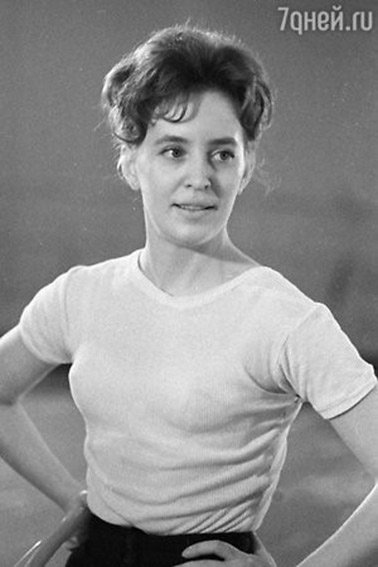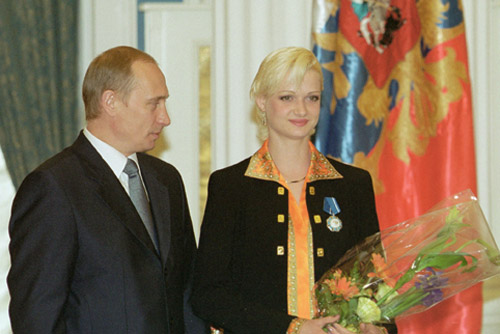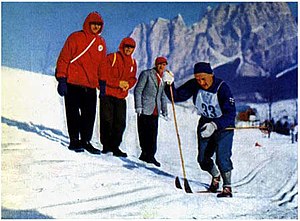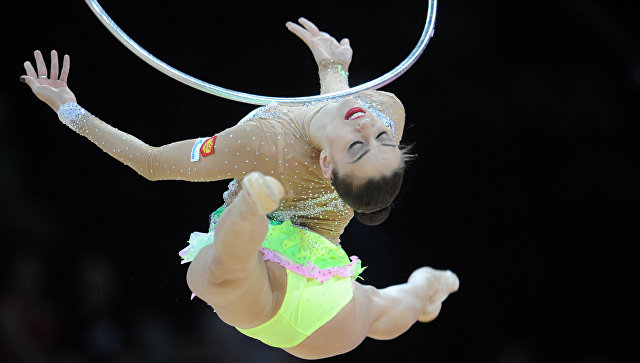Гонобоблева, Татьяна Павловна. Татьяна павловна гонобоблева
Татьяна Павловна Гонобоблева Википедия
| Гонобоблева Татьяна | |
| женский | |
| Татьяна Павловна Гонобоблева (Семёнова) | |
| СССР СССР | |
| волейбол | |
| 19 января 1948(1948-01-19) | |
| Ленинград, СССР | |
| 28 мая 2007(2007-05-28) (59 лет) | |
| Награды и медали | |
Татья́на Па́вловна Гонобо́блева (до 1971 — Семёнова) (19 января 1948 — 28 мая 2007) — советская волейболистка, игрок сборной СССР (1971—1974). Олимпийская чемпионка 1972, победитель розыгрыша Кубка мира 1973, чемпионка Европы 1971. Заслуженный мастер спорта СССР (1972). Игровая функция — связующая.
Биография
Родилась и начала заниматься волейболом в Ленинграде. Первый тренер — В. А. Гладкова.
Выступала за команды: 1965—1968 — «Спартак» (Ленинград), 1969—1979 — «Буревестник» (Ленинград). Серебряный призёр чемпионатов СССР 1969 и 1970. В составе сборной Ленинграда стала серебряным призёром Спартакиады народов СССР 1971.
В 1973 году в составе студенческой сборной СССР стала победительницей Всемирной Универсиады.
В сборной СССР в официальных соревнованиях выступала в 1971—1974 годах. В её составе: олимпийская чемпионка 1972, серебряный призёр чемпионата мира 1974, победитель первого розыгрыша Кубка мира 1973, чемпионка Европы 1971.
После завершения спортивной карьеры работала тренером.
Награждена орденом «Знак Почёта».
Источник
- Волейбол. Энциклопедия / Сост. В. Л. Свиридов, О. С. Чехов. — Томск: Компания «Янсон», 2001.
Ссылки
В этой биографической статье об умершем человеке не указано место смерти. Вы можете помочь проекту, добавив место смерти в текст статьи. |
wikiredia.ru
Гонобоблева, Татьяна Павловна — Википедия © ru.wikipedia.org
Материал из Википедии — свободной энциклопедии
| Гонобоблева Татьяна | |
| женский | |
| Татьяна Павловна Гонобоблева (Семёнова) | |
| СССР СССР | |
| волейбол | |
| 19 января 1948(1948-01-19) | |
| Ленинград, СССР | |
| 28 мая 2007(2007-05-28) (59 лет) | |
Награды и медали | |
Татья́на Па́вловна Гонобо́блева (до 1971 — Семёнова) (19 января 1948 — 28 мая 2007) — советская волейболистка, игрок сборной СССР (1971—1974). Олимпийская чемпионка 1972, победитель розыгрыша Кубка мира 1973, чемпионка Европы 1971. Заслуженный мастер спорта СССР (1972). Игровая функция — связующая.
Родилась и начала заниматься волейболом в Ленинграде. Первый тренер — В. А. Гладкова.
Выступала за команды: 1965—1968 — «Спартак» (Ленинград), 1969—1979 — «Буревестник» (Ленинград). Серебряный призёр чемпионатов СССР 1969 и 1970. В составе сборной Ленинграда стала серебряным призёром Спартакиады народов СССР 1971.
В 1973 году в составе студенческой сборной СССР стала победительницей Всемирной Универсиады.
В сборной СССР в официальных соревнованиях выступала в 1971—1974 годах. В её составе: олимпийская чемпионка 1972, серебряный призёр чемпионата мира 1974, победитель первого розыгрыша Кубка мира 1973, чемпионка Европы 1971.
После завершения спортивной карьеры работала тренером.
Награждена орденом «Знак Почёта».
- Волейбол. Энциклопедия / Сост. В. Л. Свиридов, О. С. Чехов. — Томск: Компания «Янсон», 2001.
В этой биографической статье об умершем человеке не указано место смерти. Вы можете помочь проекту, добавив место смерти в текст статьи. |
ru.wikipedia.org.mevn.net
Гонобоблева Татьяна Павловна Википедия
| Гонобоблева Татьяна | ||||||||||||||||||||||||||||||||||
| женский | ||||||||||||||||||||||||||||||||||
| Татьяна Павловна Гонобоблева (Семёнова) | ||||||||||||||||||||||||||||||||||
| СССР СССР | ||||||||||||||||||||||||||||||||||
| волейбол | ||||||||||||||||||||||||||||||||||
| 19 января 1948(1948-01-19) | ||||||||||||||||||||||||||||||||||
| Ленинград, СССР | ||||||||||||||||||||||||||||||||||
| 28 мая 2007(2007-05-28) (59 лет) | ||||||||||||||||||||||||||||||||||
| Награды и медали
| ||||||||||||||||||||||||||||||||||
Татья́на Па́вловна Гонобо́блева (до 1971 — Семёнова) (19 января 1948 — 28 мая 2007) — советская волейболистка, игрок сборной СССР (1971—1974). Олимпийская чемпионка 1972, победитель розыгрыша Кубка мира 1973, чемпионка Европы 1971. Заслуженный мастер спорта СССР (1972). Игровая функция — связующая.
Биография[ | код]
Родилась и начала заниматься волейболом в Ленинграде. Первый тренер — В. А. Гладкова.
Выступала за команды: 1965—1968 — «Спартак» (Ленинград), 1969—1979 — «Буревестник» (Ленинград). Серебряный призёр чемпионатов СССР 1969 и 1970. В составе сборной Ленинграда стала серебряным призёром Спартакиады народов СССР 1971.
В 1973 году в составе студенческой сборной СССР стала победительницей Всемирной Универсиады.
В сборной СССР в официальных соревнованиях выступала в 1971—1974 годах. В её составе:
ru-wiki.ru
Гонобоблева, Татьяна Павловна - WikiVisually
1. Союз Советских Социалистических Республик – The Soviet Union, officially the Union of Soviet Socialist Republics was a socialist state in Eurasia that existed from 1922 to 1991. It was nominally a union of national republics, but its government. The Soviet Union had its roots in the October Revolution of 1917 and this established the Russian Socialist Federative Soviet Republic and started the Russian Civil War between the revolutionary Reds and the counter-revolutionary Whites. In 1922, the communists were victorious, forming the Soviet Union with the unification of the Russian, Transcaucasian, Ukrainian, following Lenins death in 1924, a collective leadership and a brief power struggle, Joseph Stalin came to power in the mid-1920s. Stalin suppressed all opposition to his rule, committed the state ideology to Marxism–Leninism. As a result, the country underwent a period of rapid industrialization and collectivization which laid the foundation for its victory in World War II and postwar dominance of Eastern Europe. Shortly before World War II, Stalin signed the Molotov–Ribbentrop Pact agreeing to non-aggression with Nazi Germany, in June 1941, the Germans invaded the Soviet Union, opening the largest and bloodiest theater of war in history. Soviet war casualties accounted for the highest proportion of the conflict in the effort of acquiring the upper hand over Axis forces at battles such as Stalingrad. Soviet forces eventually captured Berlin in 1945, the territory overtaken by the Red Army became satellite states of the Eastern Bloc. The Cold War emerged by 1947 as the Soviet bloc confronted the Western states that united in the North Atlantic Treaty Organization in 1949. Following Stalins death in 1953, a period of political and economic liberalization, known as de-Stalinization and Khrushchevs Thaw, the country developed rapidly, as millions of peasants were moved into industrialized cities. The USSR took a lead in the Space Race with Sputnik 1, the first ever satellite, and Vostok 1. In the 1970s, there was a brief détente of relations with the United States, the war drained economic resources and was matched by an escalation of American military aid to Mujahideen fighters. In the mid-1980s, the last Soviet leader, Mikhail Gorbachev, sought to reform and liberalize the economy through his policies of glasnost. The goal was to preserve the Communist Party while reversing the economic stagnation, the Cold War ended during his tenure, and in 1989 Soviet satellite countries in Eastern Europe overthrew their respective communist regimes. This led to the rise of strong nationalist and separatist movements inside the USSR as well, in August 1991, a coup détat was attempted by Communist Party hardliners. It failed, with Russian President Boris Yeltsin playing a role in facing down the coup. On 25 December 1991, Gorbachev resigned and the twelve constituent republics emerged from the dissolution of the Soviet Union as independent post-Soviet states
2. Волейбол – Volleyball is a team sport in which two teams of six players are separated by a net. Each team tries to points by grounding a ball on the other teams court under organized rules. It has been a part of the program of the Summer Olympic Games since 1964. The receiving team must not let the ball be grounded within their court, the team may touch the ball up to 3 times but individual players may not touch the ball twice consecutively. The team that wins the rally is awarded a point, the ball is usually played with the hands or arms, but players can legally strike or push the ball with any part of the body. A number of consistent techniques have evolved in volleyball, including spiking and blocking as well as passing, setting, the game took some of its characteristics from tennis and handball. Another indoor sport, basketball, was catching on in the area, having been invented just ten miles away in the city of Springfield, Massachusetts, only four years before. Mintonette was designed to be a sport, less rough than basketball, for older members of the YMCA. The first rules, written down by William G Morgan, called for a net 6 ft 6 in high, a 25 ft ×50 ft court, and any number of players. A match was composed of nine innings with three serves for each team in each inning, and no limit to the number of contacts for each team before sending the ball to the opponents court. In case of an error, a second try was allowed. Hitting the ball into the net was considered a foul —except in the case of the first-try serve, Volleyball rules were slightly modified by the International YMCA Training School and the game spread around the country to various YMCAs. The first official ball used in volleyball is disputed, some say that Spalding created the first official ball in 1896. In 1917, the game was changed from 21 to 15 points, in 1919, about 16,000 volleyballs were distributed by the American Expeditionary Forces to their troops and allies, which sparked the growth of volleyball in new countries. The first country outside the United States to adopt volleyball was Canada in 1900, an international federation, the Fédération Internationale de Volleyball, was founded in 1947, and the first World Championships were held in 1949 for men and 1952 for women. The sport is now popular in Brazil, in Europe, in Russia, and in countries including China. Beach volleyball, a variation of the played on sand. Volleyball is also a sport at the Paralympics managed by the World Organization Volleyball for Disabled, nudists were early adopters of the game with regular organized play in clubs as early as the late 1920s
3. Санкт-Петербург – Saint Petersburg is Russias second-largest city after Moscow, with five million inhabitants in 2012, and an important Russian port on the Baltic Sea. It is politically incorporated as a federal subject, situated on the Neva River, at the head of the Gulf of Finland on the Baltic Sea, it was founded by Tsar Peter the Great on May 271703. In 1914, the name was changed from Saint Petersburg to Petrograd, in 1924 to Leningrad, between 1713 and 1728 and 1732–1918, Saint Petersburg was the capital of imperial Russia. In 1918, the government bodies moved to Moscow. Saint Petersburg is one of the cities of Russia, as well as its cultural capital. The Historic Centre of Saint Petersburg and Related Groups of Monuments constitute a UNESCO World Heritage Site, Saint Petersburg is home to The Hermitage, one of the largest art museums in the world. A large number of consulates, international corporations, banks. Swedish colonists built Nyenskans, a fortress, at the mouth of the Neva River in 1611, in a then called Ingermanland. A small town called Nyen grew up around it, Peter the Great was interested in seafaring and maritime affairs, and he intended to have Russia gain a seaport in order to be able to trade with other maritime nations. He needed a better seaport than Arkhangelsk, which was on the White Sea to the north, on May 1703121703, during the Great Northern War, Peter the Great captured Nyenskans, and soon replaced the fortress. On May 271703, closer to the estuary 5 km inland from the gulf), on Zayachy Island, he laid down the Peter and Paul Fortress, which became the first brick and stone building of the new city. The city was built by conscripted peasants from all over Russia, tens of thousands of serfs died building the city. Later, the city became the centre of the Saint Petersburg Governorate, Peter moved the capital from Moscow to Saint Petersburg in 1712,9 years before the Treaty of Nystad of 1721 ended the war, he referred to Saint Petersburg as the capital as early as 1704. During its first few years, the city developed around Trinity Square on the bank of the Neva, near the Peter. However, Saint Petersburg soon started to be built out according to a plan, by 1716 the Swiss Italian Domenico Trezzini had elaborated a project whereby the city centre would be located on Vasilyevsky Island and shaped by a rectangular grid of canals. The project was not completed, but is evident in the layout of the streets, in 1716, Peter the Great appointed French Jean-Baptiste Alexandre Le Blond as the chief architect of Saint Petersburg. In 1724 the Academy of Sciences, University and Academic Gymnasium were established in Saint Petersburg by Peter the Great, in 1725, Peter died at the age of fifty-two. His endeavours to modernize Russia had met opposition from the Russian nobility—resulting in several attempts on his life
4. Летние Олимпийские игры – The Summer Olympic Games or the Games of the Olympiad, first held in 1896, is an international multi-sport event that is hosted by a different city every four years. The most recent Olympics were held in Rio de Janeiro, Brazil, the International Olympic Committee organizes the games and oversees the host citys preparations. In each Olympic event, gold medals are awarded for first place, silver medals are awarded for second place, and bronze medals are awarded for third, the Winter Olympic Games were created due to the success of the Summer Olympics. The Olympics have increased in scope from a 42-event competition with fewer than 250 male competitors from 14 nations in 1896 to 302 events with 10,768 competitors from 204 nations in 2012, eighteen countries have hosted the Summer Olympics. The United States has hosted four Summer Olympics, more than any other nation, four cities have hosted two Summer Olympics, Athens, Paris, Los Angeles, and Tokyo. Tokyo is the first city outside of the Western world to host the Summer Olympics multiple times, asia has hosted the Summer Olympics four times in Japan, South Korea, and China. The only Summer Olympics held in the Southern Hemisphere have been in Australia, the 2016 Games are the first Summer Olympics to be held in South America and the first to be held during the local winter season. Africa has yet to host a Summer Olympics, only five countries—Greece, Australia, France, Great Britain, and Switzerland—have been represented at every Summer Olympic Games. The only country to have won at least one medal at every Summer Olympic Games is Great Britain. The United States leads the medal table. Qualification rules for each of the Olympic sports are set by the International Sports Federations that governs that sports international competition, for individual sports, competitors typically qualify through attaining a certain place in a major international event or on the IFs ranking list. There is a rule that maximum three individual athletes may represent each nation per competition. Nations most often qualify teams for team sports through continental qualifying tournaments, each nation may be represented by no more than one team per competition a team is two people in some sports. The United States has hosted four Summer Olympic Games, more than any other nation, the United Kingdom hosted the 2012 Olympic Games, its third Summer Olympic Games, in its capital London, making London the first city to host the Summer Olympic Games three times. Australia, France, Germany, Greece, and Japan have all hosted the Summer Olympic Games twice. Other countries that have hosted the Summer Olympics are Belgium, Brazil, China, Canada, Finland, Italy, Mexico, Netherlands, South Korea, Spain, the Soviet Union, asia has hosted the Summer Olympics three times and will host again in 2020. In 2016, Rio de Janeiro hosted the first Summer Olympics in South America, three cities have hosted two Summer Olympic Games, Los Angeles, Paris, and Athens. Stockholm has hosted events at two Summer Olympic Games, having hosted the games in 1912 and the events at the 1956 Summer Olympics—which they are usually listed as jointly hosting
5. Летние Олимпийские игры 1972 – The 1972 Summer Olympics, officially known as the Games of the XX Olympiad, was an international multi-sport event held in Munich, West Germany, from August 26 to September 11,1972. The sporting nature of the event was overshadowed by the Munich massacre in which eleven Israeli athletes and coaches. Five Black September Palestinian terrorists died, the 1972 Summer Olympics were the second Summer Olympics to be held in Germany, after the 1936 Games in Berlin, which had taken place under the Nazi regime. The logo of the Games was a blue solar logo by Otl Aicher, the Olympic mascot, the dachshund Waldi, was the first officially named Olympic mascot. The Olympic Fanfare was composed by Herbert Rehbein, a companion of Bert Kaempfert, the Olympic Park is based on Frei Ottos plans and after the Games became a Munich landmark. The competition sites, designed by architect Günther Behnisch, included the Olympic swimming hall, the Olympics Hall and the Olympic Stadium, and an Olympic village very close to the park. The design of the stadium was considered revolutionary, with sweeping canopies of acrylic glass stabilized by metal ropes, Munich won its Olympic bid on April 26,1966, at the 64th IOC Session at Rome, Italy, over bids presented by Detroit, Madrid, and Montréal. Montreal would eventually host the following Olympic games in 1976, the Games were largely overshadowed by what has come to be known as the Munich massacre. Two of the hostages who resisted were killed in the first moments of the break-in, the German authorities planned to ambush them there, but underestimated the numbers of their opposition and were thus undermanned. During a botched attempt, all of the Israeli hostages were killed. Four of them were shot, then incinerated when one of the terrorists detonated a grenade inside the helicopter in which the hostages were sitting, the five remaining hostages were then machine-gunned to death. All but three of the terrorists were killed as well, although arrested and imprisoned pending trial, they were released by the West German government on October 29,1972, in exchange for a hijacked Lufthansa jet. Two of those three were supposedly hunted down and assassinated later by the Mossad, jamal Al-Gashey, who is believed to be the sole survivor, is still living today in hiding in an unspecified African country with his wife and two children. A memorial ceremony was held in the Olympic stadium. The attack prompted heightened security at subsequent Olympics beginning with the 1976 Winter Olympics, security at Olympics was heightened further beginning with the 2002 Winter Olympics, as they were the first to take place since September 11,2001. The massacre led the German federal government to re-examine its anti-terrorism policies and this led to the creation of the elite counter-terrorist unit GSG9, similar to the British SAS. It also led Israel to launch a campaign known as Operation Wrath of God, in which those suspected of involvement were systematically tracked down, the events of the Munich massacre were chronicled in the Oscar-winning documentary, One Day in September. An account of the aftermath is also dramatized in three films, the 1976 made-for-TV movie 21 Hours at Munich, the 1986 made-for-TV movie Sword of Gideon and Steven Spielbergs 2005 film Munich
wikivisually.com
Гонобоблева, Татьяна Павловна — Википедия
Материал из Википедии — свободной энциклопедии
| Гонобоблева Татьяна | |
| женский | |
| Татьяна Павловна Гонобоблева (Семёнова) | |
| СССР СССР | |
| волейбол | |
| 19 января 1948(1948-01-19) | |
| Ленинград, СССР | |
| 28 мая 2007(2007-05-28) (59 лет) | |
| Награды и медали | |
Татья́на Па́вловна Гонобо́блева (до 1971 — Семёнова) (19 января 1948 — 28 мая 2007) — советская волейболистка, игрок сборной СССР (1971—1974). Олимпийская чемпионка 1972, победитель розыгрыша Кубка мира 1973, чемпионка Европы 1971. Заслуженный мастер спорта СССР (1972). Игровая функция — связующая.
Родилась и начала заниматься волейболом в Ленинграде. Первый тренер — В. А. Гладкова.
Выступала за команды: 1965—1968 — «Спартак» (Ленинград), 1969—1979 — «Буревестник» (Ленинград). Серебряный призёр чемпионатов СССР 1969 и 1970. В составе сборной Ленинграда стала серебряным призёром Спартакиады народов СССР 1971.
В 1973 году в составе студенческой сборной СССР стала победительницей Всемирной Универсиады.
В сборной СССР в официальных соревнованиях выступала в 1971—1974 годах. В её составе: олимпийская чемпионка 1972, серебряный призёр чемпионата мира 1974, победитель первого розыгрыша Кубка мира 1973, чемпионка Европы 1971.
После завершения спортивной карьеры работала тренером.
Награждена орденом «Знак Почёта».
- Волейбол. Энциклопедия / Сост. В. Л. Свиридов, О. С. Чехов. — Томск: Компания «Янсон», 2001.
В этой биографической статье об умершем человеке не указано место смерти. Вы можете помочь проекту, добавив место смерти в текст статьи. |
ru.wikiyy.com
| Татьяна Павловна Гонобоблева Семёнова | |||||||||||||||||||||||||||||||
| СССР СССР | |||||||||||||||||||||||||||||||
| волейбол | |||||||||||||||||||||||||||||||
| 19 января 19481948-01-19 | |||||||||||||||||||||||||||||||
| Ленинград, СССР | |||||||||||||||||||||||||||||||
| 28 мая 20072007-05-28 59 лет | |||||||||||||||||||||||||||||||
Награды и медали
| |||||||||||||||||||||||||||||||
| ||||
гонобоблева татьяна павловна карпилович, гонобоблева татьяна павловна морозова, гонобоблева татьяна павловна радионова
Гонобоблева, Татьяна Павловна Информация о
Гонобоблева, Татьяна Павловна Комментарии
Гонобоблева, Татьяна ПавловнаГонобоблева, Татьяна Павловна Гонобоблева, Татьяна Павловна Просмотр темы.
Гонобоблева, Татьяна Павловна что, Гонобоблева, Татьяна Павловна кто, Гонобоблева, Татьяна Павловна объяснение
There are excerpts from wikipedia on this article and video
www.turkaramamotoru.com
Татьяна Павловна Гонобоблева Википедия
| Гонобоблева Татьяна | ||||||||||||||||||||||||||||||||||
| женский | ||||||||||||||||||||||||||||||||||
| Татьяна Павловна Гонобоблева (Семёнова) | ||||||||||||||||||||||||||||||||||
| СССР СССР | ||||||||||||||||||||||||||||||||||
| волейбол | ||||||||||||||||||||||||||||||||||
| 19 января 1948(1948-01-19) | ||||||||||||||||||||||||||||||||||
| Ленинград, СССР | ||||||||||||||||||||||||||||||||||
| 28 мая 2007(2007-05-28) (59 лет) | ||||||||||||||||||||||||||||||||||
| Награды и медали
| ||||||||||||||||||||||||||||||||||
Татья́на Па́вловна Гонобо́блева (до 1971 — Семёнова) (19 января 1948 — 28 мая 2007) — советская волейболистка, игрок сборной СССР (1971—1974). Олимпийская чемпионка 1972, победитель розыгрыша Кубка мира 1973, чемпионка Европы 1971. Заслуженный мастер спорта СССР (1972). Игровая функция — связующая.
Биография[ | код]
Родилась и начала заниматься волейболом в Ленинграде. Первый тренер — В. А. Гладкова.
Выступала за команды: 1965—1968 — «Спартак» (Ленинград), 1969—1979 — «Буревестник» (Ленинград). Серебряный призёр чемпионатов СССР 1969 и 1970. В составе сборной Ленинграда стала серебряным призёром Спартакиады народов СССР 1971.
В 1973 году в составе студенческой сборной СССР стала победительницей Всемирной Универсиады.
В сборной СССР в офи
ru-wiki.ru










